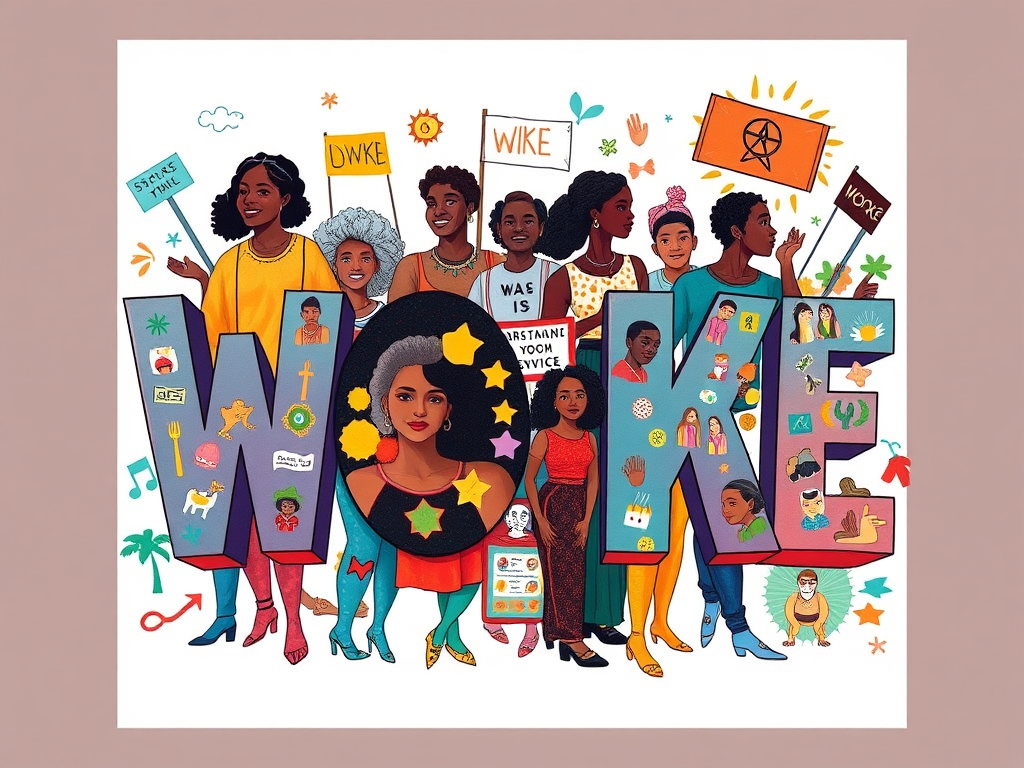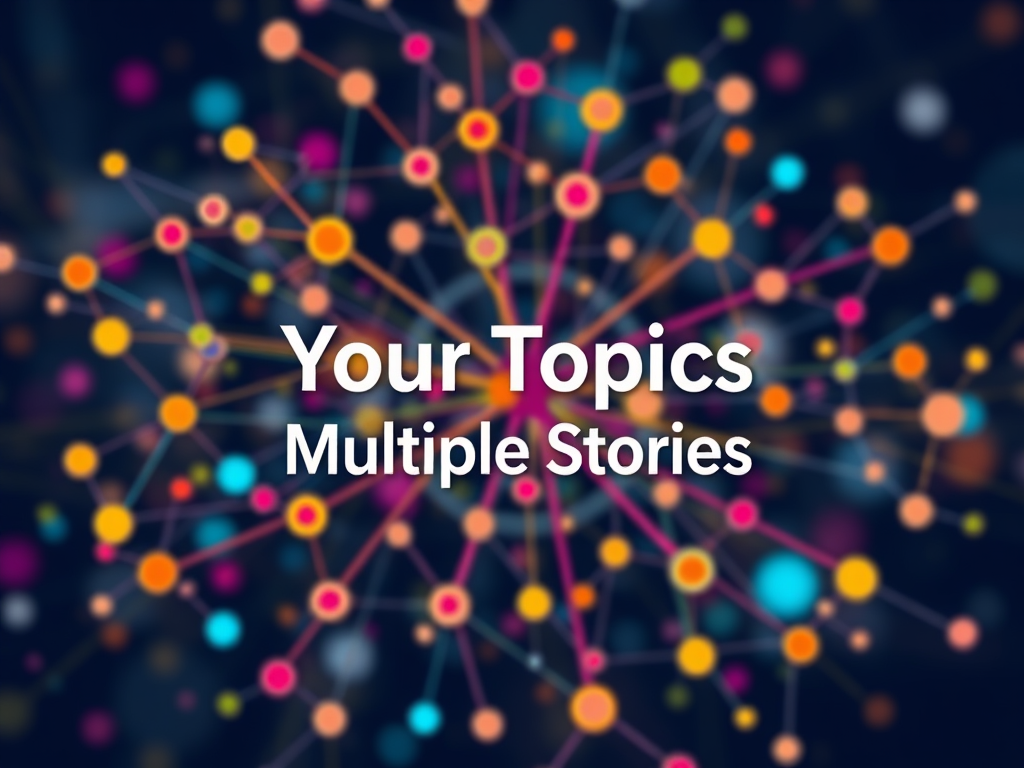The term “woke” has become one of the most polarizing words in contemporary American discourse. What began as a call for social awareness within African American culture has transformed into a lightning rod for culture wars and political messaging. This comprehensive examination traces the journey of wokeness from its roots in Black liberation movements to its current status as a weapon in conservative and progressive political arsenals.
The Historical Origins: From Marcus Garvey to Lead Belly
Early Foundations in Black Activism
The concept of being “woke” predates its current political correctness debates by nearly a century. Marcus Garvey, the influential Jamaican civil rights activist, used the phrase “Wake up Ethiopia!” in 1923 as part of his Black nationalism movement. This early usage established the foundation for what would become a cornerstone of Black activism.
The etymology of “woke” reveals fascinating insights into language evolution. The term’s word origins can be traced through several key historical moments:
| Year | Figure | Context | Significance |
|---|---|---|---|
| 1923 | Marcus Garvey | “Wake up Ethiopia!” | Early Black nationalist awakening |
| 1938 | Lead Belly | “Scottsboro Boys” song | Warning about racial injustice |
| 1962 | William Melvin Kelley | New York Times article | First documented “woke” usage |
| 2008 | Erykah Badu | “Master Teacher” song | Modern revival begins |
| 2016 | Childish Gambino | “Redbone” | Mainstream cultural penetration |
The Scottsboro Boys and Musical Resistance
Lead Belly’s 1938 blues music piece about the Scottsboro Boys case represents a crucial moment in historical linguistics. The song contained the lyric “I advise everybody, be a little careful when they go along through there—best stay woke, keep their eyes open.” This usage demonstrated how protest songs served as vehicles for social movements and community-specific language.
The Scottsboro Boys themselves became symbols of racial injustice in Alabama, highlighting how discrimination and hate speech were institutionalized in the American legal system. Their case exemplified the need for Black liberation and the importance of staying vigilant against white grievance politics.
The Semantic Evolution: From Community Code to Cultural Weapon
Understanding Semantic Pejoration
The transformation of “woke” demonstrates classic semantic pejoration—the process by which words acquire negative connotations over time. Sociolinguistics research shows that terms originating in marginalized communities often undergo this semantic shift when adopted by mainstream culture.
deandre a. miles-hercules, a linguistics scholar at the University of California at Santa Barbara, explains that this phenomenon reflects broader power dynamics in language. When dominant groups co-opt terminology from diaspora communities, the original meaning frequently becomes distorted or weaponized.
The Digital Age Transformation
The rise of social media platforms, particularly TikTok, accelerated the terminology evolution of “woke.” Viral content and hashtag activism transformed the term from a community standard into a polarizing polemic.
Erykah Badu’s 2008 song “Master Teacher” marked the beginning of the modern revival, with lyrics encouraging listeners to “stay woke.” The song’s message emphasized:
- Social awareness of systemic issues
- Critical thinking about media narratives
- Community solidarity against oppression
- Moral psychology of resistance
Corporate America and the Woke Wars
The Business of Social Justice
Corporate activism has become a defining feature of the woke culture debate. Major companies have faced consumer backlash for their stances on social justice issues:
Disney faced significant controversy over its opposition to Florida’s education policies, leading to political retaliation from Ron DeSantis. The Disney controversy highlighted the risks of corporate social responsibility in politically charged environments.
Bud Light experienced a massive boycott after partnering with transgender influencer Dylan Mulvaney. The Bud Light boycott demonstrated how LGBTQ marketing can trigger conservative responses and impact brand loyalty.
Target faced similar challenges during Pride Month celebrations, with conservative activists organizing boycotts of their LGBTQ merchandise displays.
The Economics of Wokeness
The financial implications of woke ideology have created new considerations for stakeholder capitalism:
- ESG investing principles now factor into corporate decision-making
- Demographic targeting requires careful navigation of culture wars
- Brand positioning must balance progressive values with traditional values
- Market research increasingly focuses on political communication impacts
Political Weaponization: The 2025 Campaign Trail
Republican Strategy and Messaging
The 2024 election cycle has seen unprecedented use of anti-woke rhetoric in Republican campaign strategy. Donald Trump, Ron DeSantis, and Nikki Haley have all incorporated anti-woke messaging into their voter mobilization efforts.
Conservative candidates have used the term to attack:
- Diversity training programs in education
- Inclusive language policies
- Critical race theory in K-12 education
- Transgender rights legislation
- LGBTQ rights protections
Dan Crenshaw, Representative from Texas, exemplifies this approach, using woke as a pejorative to dismiss progressive policies and mobilize the conservative base.
The Language of Division
Political messaging around wokeness demonstrates sophisticated discourse analysis. Campaign rhetoric employs several linguistic strategies:
- Dog whistle politics that appeal to white grievance politics
- Semantic analysis reveals coded language targeting identity politics
- Weaponizing language to create us-versus-them narratives
- Calling out opponents as threats to traditional values
Academic Perspectives: Scholarly Analysis
Linguistic Scholarship and Research
Candis Watts Smith at Duke University has conducted extensive research on how woke functions in political communication. Her work reveals that the term’s semantic shift reflects broader patterns in American discourse studies.
Social psychological work on implicit bias provides context for understanding why wokeness generates such strong reactions. Research shows that discussions of systemic racism and white privilege can trigger defensiveness and cognitive bias among some audiences.
The Role of Media and Academia
University policies regarding diversity training and inclusive language have become flashpoints in the woke debate. Campus culture discussions often center on:
- Academic freedom versus hate speech policies
- Student activism and faculty responsibilities
- Curriculum debates over historical context
- Teacher training on cultural sensitivity
Higher education institutions struggle to balance free speech protections with anti-discrimination policies, creating ongoing tensions around wokeness.
The Psychology of Woke Resistance
Emotional and Cognitive Responses
Understanding the psychology behind anti-woke sentiment requires examining several factors:
Moral psychology research suggests that conservative and progressive individuals prioritize different ethical frameworks. Conservatives often emphasize traditional values like loyalty and authority, while progressives focus on fairness and preventing harm.
Cognitive bias plays a significant role in how people interpret woke messaging. Confirmation bias leads individuals to seek information that confirms their existing beliefs about social justice issues.
Group Dynamics and Social Identity
Group dynamics research reveals how woke discussions can reinforce in-group versus out-group thinking. Social conditioning influences how people respond to messages about privilege and systemic oppression.
Intersectionality concepts challenge traditional thinking about identity politics, leading to knee-jerk dismissal from some audiences who find these ideas threatening to their worldview.
Regional and Cultural Variations
Geographic Patterns
Woke reception varies significantly across demographic and geographic lines:
Urban vs rural communities show distinct patterns in woke acceptance, with urban areas generally more receptive to social justice messaging.
Red states versus blue states demonstrate clear voting patterns related to woke issues, influencing election strategy and political messaging.
Regional dialects and cultural geography affect how woke terminology is received and interpreted across different community values.
Cultural Production and Entertainment
Hollywood and the entertainment industry have become central to woke debates. Streaming platforms face pressure over content moderation and diversity casting decisions.
Celebrity activism by figures like Childish Gambino has influenced how woke messages reach mainstream audiences. Influencers and content creators play crucial roles in shaping public discourse around social justice issues.
The Global Context: International Perspectives
Transnational Movements
Woke ideology has spread beyond American borders through global movements and international activism. Cross-cultural communication challenges arise when American woke concepts encounter different cultural contexts.
Human rights organizations worldwide have adopted aspects of woke language while adapting it to local political and cultural circumstances. This globalization of woke terminology demonstrates its transnational appeal and limitations.
Digital Platforms and Algorithm Bias
Online harassment and content moderation decisions significantly impact woke discourse. Algorithm bias can create echo chambers and filter bubbles that reinforce existing beliefs about social justice issues.
Tech censorship concerns arise when digital platforms make decisions about woke content, raising questions about free speech and platform politics.
Looking Forward: The Future of Woke
Ongoing Evolution
The language evolution of “woke” continues as new generational differences emerge. Gen Z and Millennial users often embrace woke concepts while older generations may resist them.
Microaggressions and privilege discussions remain central to woke discourse, with ongoing debates about allyship and empathy in social movements.
Potential Reconciliation
Respectful dialogue between woke advocates and critics requires moving beyond bombastic accusations and self-righteous positioning. Mutual understanding becomes possible when both sides avoid talking past each other.
Behavioral modification and attitude change research suggests that woke concepts can gain broader acceptance through:
- Emphasizing shared moral values
- Avoiding language policing approaches
- Focusing on empathy and understanding
- Acknowledging cultural sensitivity concerns
Conclusion: Beyond the Battle Lines
The journey of “woke” from Marcus Garvey’s 1923 call to “Wake up Ethiopia!” to today’s political battleground reveals the complex relationship between language, power, and social change. What began as a Black liberation term encouraging social awareness has become a cultural touchstone that divides American society.
The semantic pejoration of “woke” demonstrates how dominant groups can co-opt and weaponize language from marginalized communities. Yet the original message—the importance of staying alert to injustice and systemic oppression—remains relevant across political divides.
As American society continues to grapple with issues of race, identity, and social justice, the woke debate will likely evolve further. The challenge lies in moving beyond polarizing polemics toward constructive dialogue that honors the term’s historical context while addressing legitimate concerns about language policing and cancel culture.
Understanding the etymology and evolution of “woke” provides crucial insight into contemporary American political communication. Whether used as a rallying cry for social justice or a pejorative for political correctness, the term continues to shape public discourse and cultural conversations about equality, justice, and American values.
The future of woke depends on whether American society can move beyond culture wars toward mutual understanding and respectful dialogue about the social issues that divide us. Only through such constructive engagement can we hope to bridge the political and cultural divides that “woke” has come to represent.

Catherine Frank, founder of BiblicalHorizon.com, shares daily prayers and Bible verses to nurture spiritual growth. With a lifelong passion for scripture and prayer traditions, she creates accessible spiritual content that resonates with both seasoned believers and newcomers seeking divine connection.



